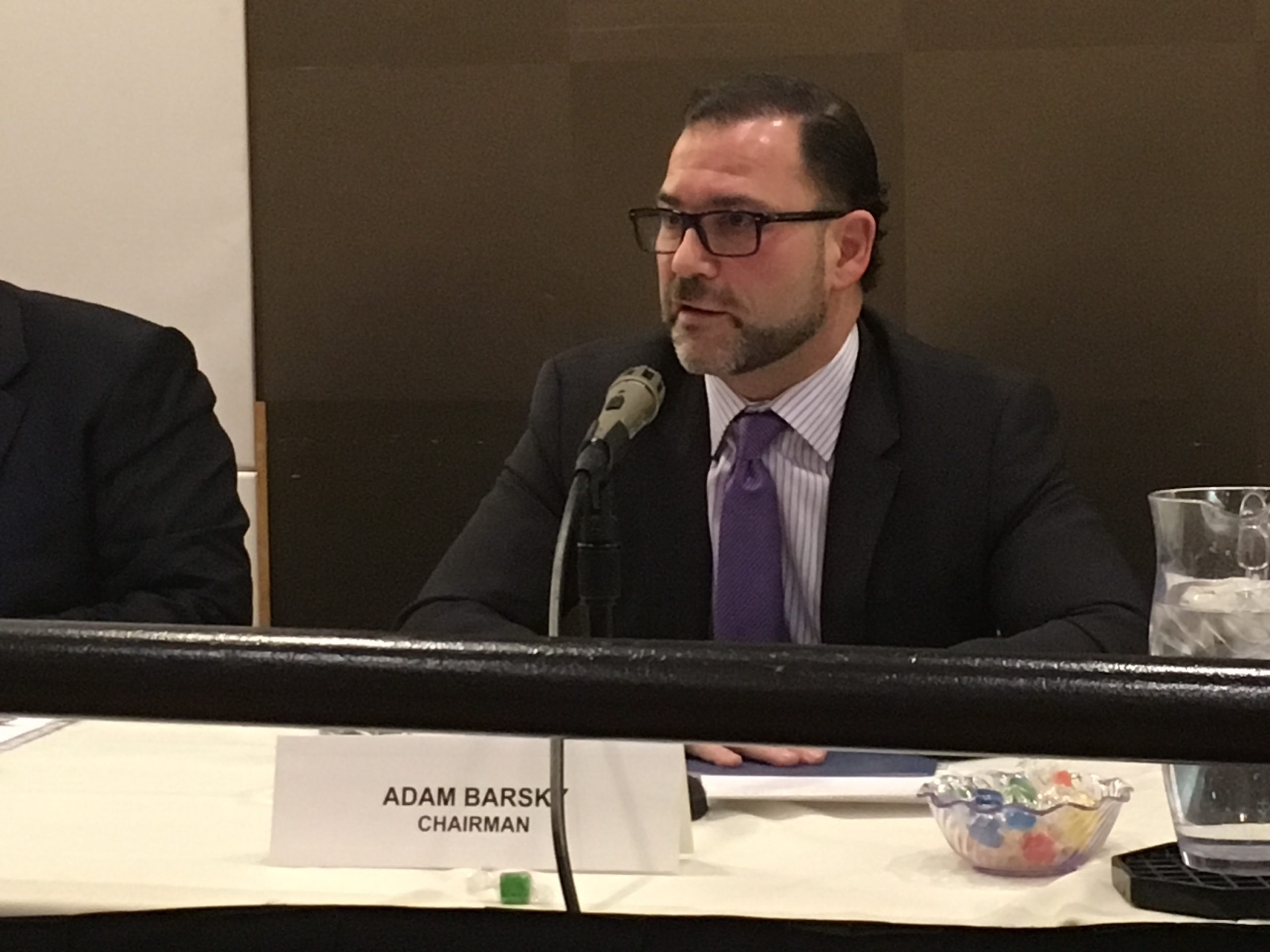Nassau County’s financial control board last Wednesday approved the county’s revised 2017 budget plan containing $21 million in cuts and a hefty increase to a real estate fee.
The budget resolution approved 4-1 by the Nassau Interim Finance Authority board of directors requires the county to find recurring revenue and get NIFA approval before restoring any spending cut in the $2.9 billion budget.
“With careful management, the county’s actions are achievable,” Evan Cohen, NIFA’s executive director, said Wednesday.
County Executive Edward Mangano’s administration submitted a plan Dec. 15 to cover a $36 million budget hole by cutting $21 million — including $3.8 million in subsidies to the Nassau Inter-County Express bus system — and increasing Nassau’s tax map verification fee to $355 from $225, expected to raise about $15 million in new revenue.
The Legislature approved that fee hike Wednesday afternoon.
NIFA, which had threatened to block county contracts and borrowing if the hole was not closed, found the plan feasible, but will not allow officials to bring back cut spending with one-off revenue, or money that comes in higher than projected.
That money must be put toward mitigating Nassau’s remaining $46 million in budgetary risks, said Adam Barsky, the NIFA chairman.
That would include any revenue from a so-called “amnesty” program the Legislature approved last month giving business owners discounts on fines for not reporting income and expenses for their revenue-generating properties to the county, Barsky said.
The law requiring those fines is being challenged in court.
Even if those risks are addressed, the county will still end next year with a $60 million deficit based on generally accepted accounting principals because of borrowing for property tax refunds, Cohen said.
NIFA projects a $234 million deficit by 2020 if no additional revenue sources are created, he said.
NIFA must work with county officials “to mitigate risks that may occur during this coming fiscal year and to address the looming gaps in the out years as soon as possible,” Barsky said.
NIFA board member Howard Weitzman voted against approving the budget plan, saying it is “built on unwarranted optimism and denial of previous history.”
Last month he called for the county to address more than $36 million worth of risks.
“For a county that borrows for its regular operating expenses, this is a totally unacceptable level of risk,” said Weitzman, a former Nassau County comptroller.
NIFA’s vote ended a more than two-month fight over Nassau’s budget resembling a similarly protracted dispute last year between the authority, Mangano and the county Legislature.
Mangano’s budget did not increase property taxes but included dozens of new and increased fees, including a surcharge for parking and traffic tickets.
The Legislature cut the fee to $55 from $105 and applied it only to traffic violations, creating the $36 million budget hole.
NIFA forced county officials to cut the budgets of top elected officials, reassign 30 police officers to patrols, delay the hiring of new officers, suspend county aid to villages and eliminate the Regional Planning Board, amid other cuts.
The budget will still be subject to quarterly reviews by NIFA, a spokesman for the authority said.
In a statement, Mangano, a Republican, said the approved budget “keeps services going while providing the Legislature an opportunity to prove its projection correct or take alternate action to avoid catastrophic cuts to important health, safety and welfare initiatives and mandates.”
County Legislator Laura Curran, a Baldwin Democrat who is running for county executive next year and attended NIFA’s board meeting, said the county “dodged a bullet” and must get serious about finding new recurring revenue, including a possible property tax increase.
“I think everything has to be on the table,” she said.
In a statement, Presiding Officer Norma Gonsalves (R-East Meadow) said the Legislature intends to try and restore cuts if the budget “performs as expected and an opportunity arises to restore a service that will benefit our residents.”
While the county has made some fiscal progress in recent years, Barsky said he worries about that progress continuing next year, when Mangano’s office and every Legislature seat will be up for election.
“If there was a lack of appetite to make hard decisions this year, that appetite would be much less next year,” Barsky said.



